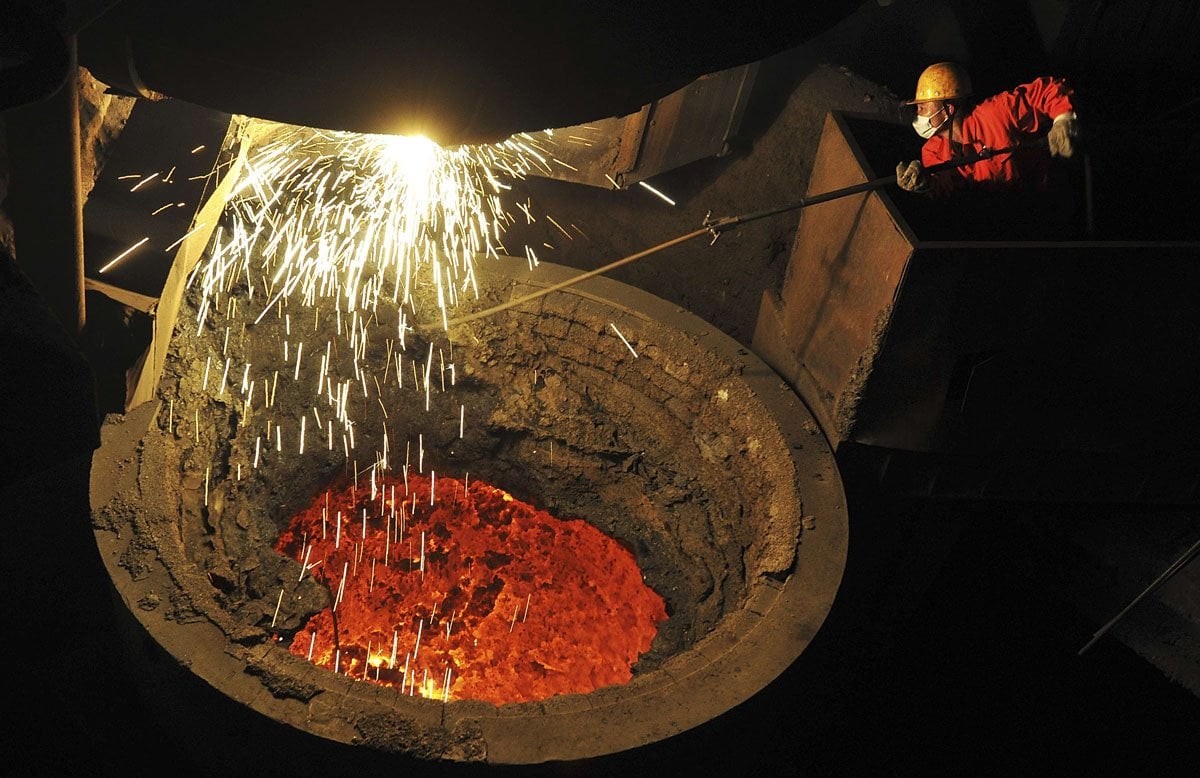
Agha Steel Industries, a Karachi-based third-generation steel-maker, is going public next month with its initial public offering (IPO), intending to raise around Rs5 billion for capacity expansion.
The steel sector anticipates a boom in the overall market based on the recently announced construction package. The government has put in place a no-questions-asked policy concerning the source of funds as long as the undocumented money is invested in the real estate and construction sectors, said Agha Steel CEO Hussain Iqbal Agha during an interview with The Express Tribune.
Analysts expect a surge in construction activity across the country since a large chunk of the economy remains undocumented. Signs of the upcoming boom are already visible, ie, cement sales grew 38% in July as compared to the same period of last year.
“The construction boom is unbelievable today. Our sales to the real estate segment were 12% of the total portfolio last year,” he said, adding, “Today, sales have crossed 30%. We’re growing by the hour. We are witnessing a phenomenal growth.”
The IPO would help the company increase the output of rebars — grey steel bars used in the construction of homes, roads and mega structures — to 650,000 tons, up by 160% from the pre-IPO level, the CEO added.
Agha Steel Industries has recorded sales growth at an annualised rate of 26% over the past six years. Net profit has grown at an average rate of 25% over the same period.
Net profit of the company in the first six months of 2019-20 stood at Rs737 million, which was almost equal to the full-year earnings the company posted in 2018-19.
The offering consists of the sale of 120 million shares of Rs10 each to investors in a two-phase IPO.
In the first phase, the company will offer 90 million shares to institutional and high net worth individuals at a floor price of Rs30 per share through book building. The strike price can go up to Rs42 per share depending on the level of interest shown by investors.
However, in the second phase, remaining 30 million shares, or 25% of the total issue, will be offered to the general public at the same strike price.
“The response from both local and foreign investors has been overwhelming so far,” he pointed out.
Book building will take place in the first half of October, which will be followed by the general public portion of the IPO and formal listing of the share on the Pakistan Stock Exchange (PSX).
The construction package given by the government is time-bound ie investments and construction must begin in the shorter term for investors to enjoy immunity from any kind of scrutiny by tax authorities.
As a result of continuous investments in expansion capacity and BMR activity, Agha Steel is set to meet the impending jump in demand.
“Our last year’s sales were approximately Rs16 billion. With the capacity expansion post-IPO, we could potentially achieve sales of over Rs70 billion at today’s price level. It is a high growth opportunity for investors,” Agha maintained.
Shedding light on other projects of the company, the CEO said, “The company is taking active part in the multibillion-dollar China-Pakistan Economic Corridor (CPEC).”
“It has supplied steel to various megaprojects — both within and outside CPEC — in recent years. Neelum Jhelum Hydropower Project, Bahria Town Karachi, Karachi Super Highway M9, FWO project for Turbat/Ormara and Sindh Engro Coal Mining Company are some of the recent clients of Agha Steel,” he revealed.
“We have placed bids for five upcoming dams. We are one of the finalists for Mohmand Dam,” he added, noting that winning the 100,000-ton contract would give an immediate boost to the company’s sales.
IPO proceeds will go towards establishing the Micro Mill Danieli (Mi.Da) project, which will shorten the duration of steel-making process significantly, resulting in cost savings, increased turnover and lower energy consumption.
It usually takes days to convert raw material (scrap) into finished product. The new technology will reduce the duration to just two hours, he said.
Instead of first making a semi-finished product (billets), cooling it down, reheating it and then making rebars, the Mi.Da technology will use an endless casting and rolling procedure. The uninterrupted nature of the process will shorten the days-long production cycle dramatically to a couple of hours.
“We will save about 70 kWh per ton in just rolling. That’s a potential saving of 45 million kWh of energy for Pakistan. Besides, guaranteed yield of metal to rebar is more than 99%, which is unparalleled in the industry,” he added.


















COMMENTS
Comments are moderated and generally will be posted if they are on-topic and not abusive.
For more information, please see our Comments FAQ